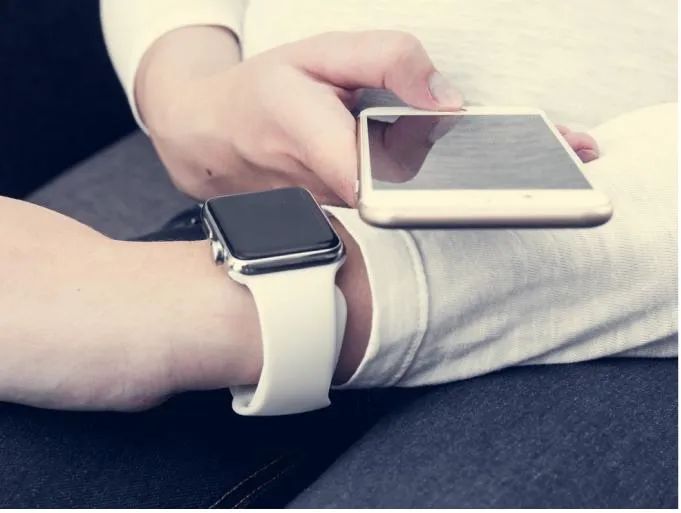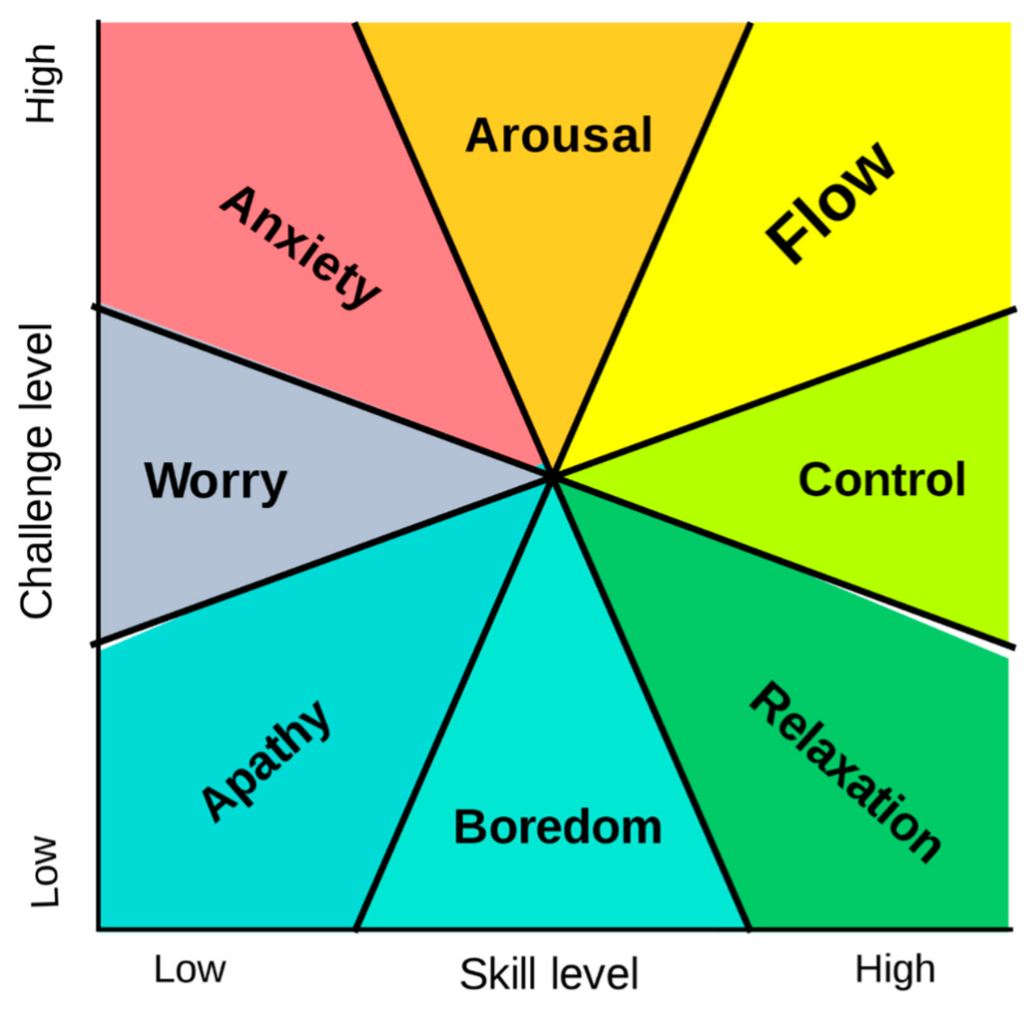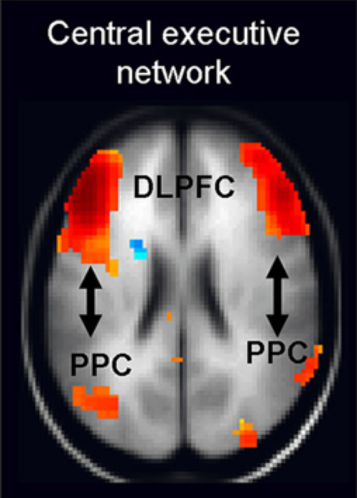
Image Source: pixabay
Jazz musicians will tell you that when creativity is at its peak, the mind seems to detach from conscious control.Written by | Dong YuanReviewed by | Clefable
One day, a colleague in the editorial department shared an anecdote about working overtime.
It was a night close to a deadline, and while working late, he entered an unusually focused state:he was so immersed in writing that he lost track of time and self—that night, he felt as if he was completing a masterpiece.
After finishing the draft, he became curious about what his body was like in that wonderful state of work, so he looked at the health monitoring data from his smartwatch. These smartwatches monitor the wearer’sheart rate changes, body movements, and other data in real-time to assess the wearer’s health status, stress levels, and sleep quality.


Smartwatches that can monitor health levels (Image Source: pixabay)
However, he found that during the time he was working overtime, the smartwatch’s monitoring records indicated that he was sleeping,and even dreaming! What was going on?
So what kind of magical working state made the smartwatch mistakenly think he was dreaming while working overtime?
The Wonderful State
In fact, many friends may have had similar experiences,where they are working, studying, gaming, or creating,and sometimes their efficiency is exceptionally high, becoming so immersed that everything else around them, including time, becomes unimportant.
This state is called“flow”, a concept first proposed by psychologist Mihaly Csikszentmihalyi. In the 1960s, Csikszentmihalyi noticed that during successful painting sessions,some artists would forget to eat and sleep, fully immersed in their creation. Later, he found similar situations among chess players, rock climbers, dancers, composers, and others.
Thus, Csikszentmihalyi developed the theory of “flow.” He believed thatflow is a state where the difficulty of a task perfectly balances with an individual’s abilities. People in this state can concentrate intensely without conscious effort, fully immersing themselves in what they are doing. They have clear goals, can completely control what they are doing, and may even feel detached from self-awareness, with their actions becoming automatic, and their perception of time may also change.
A ten-year study found thatpeople in a flow state can increase their work efficiency by 500% (this is not an exaggeration). Therefore, many companies try to help employees enter a flow state more easily to enhance their work efficiency.


Csikszentmihalyi believes that flow is a state where the difficulty of a task perfectly balances with an individual’s abilities. Tasks that are too difficult can cause anxiety and stress, while tasks that are too easy can lead to boredom (Image Source: Gold & Ciorciari, 2020)
In fact, there has been extensive research and application of the “flow” theory in psychology;however, research on its neural mechanisms is still relatively scarce.
The “CEO” in the Brain is Sometimes Unnecessary
Typically, we need subjective cognitive control to concentrate. But in a flow state,it seems you can naturally concentrate without expending much effort. Thus, some scientists speculate that flow may be related to areas in the brain that regulate attention.
This area is the“frontoparietal control network”, also known as the “central executive network” or “executive control network,” which is associated with the dorsolateral prefrontal cortex and posterior parietal cortex, and primarily functions toregulate, control, and manage cognition.


The frontoparietal network (or central executive network, Image Source: Nekovarova, Fajnerova, Horacek, Spaniel – CC BY 3.0)
Imagine your brain as a company with various employees possessing unique abilities. Some employees allow the brain to hear sounds, some enable the brain to see things, some handle the brain’s emotions, and some are responsible for memory…
Although these outstanding employees each have their own skills, if they all work according to their own ideas and pace,the company can easily fall into chaos. Therefore, the company needs ahigh-level manager who oversees everything (like a CEO) to integrate the abilities of all employees, allowing them to function as a cohesive team. This way, the brain can concentrate andfocus on a specific task or work.
The “frontoparietal control network” is the manager of this brain company, coordinating with various “departments” in the brain, managing and regulating other cognitive systems, and responsible for functions such as planning, working memory, concentration, problem-solving, and verbal reasoning.
However, when the employees in the company are already proficient in their tasks and the team collaborates well, sometimes there is less need for excessive intervention from upper management.At this point, the constraints set by the manager may actually limit the team’s ability to perform optimally.
Some scientists believe that the brain in a flow state resembles this situation. When a person is sufficiently skilled in tasks such as work, gaming, or creation,the relevant brain areas seem to form a “cohesive team” that can operate smoothly and efficiently on autopilot, without needing much cognitive control from the “frontoparietal control network.” These scientists hypothesize that at this time,the “frontoparietal control network” relaxes its control over other brain areas, allowing them to function better, thus enabling the so-called “flow” state.
Exploring the Mechanism of “Flow” through Jazz
Recently, researchers at Drexel University provided new evidence to support the above hypothesis through a study published in Neuropsychologia.
One of the most fascinating aspects of jazz isthe improvisation of jazz musicians. During performances, they often create brilliant musical segments spontaneously based on their mood. At this time,they frequently enter a flow state.


The research equipment used in the study, with one of the researchers playing guitar while testing the equipment (Image Source: Drexel University’s Creativity Research Laboratory)
In the experiment, the researchers invited 32 jazz guitarists to improvise jazz music.These jazz musicians varied greatly in skill and experience, with some having performed in 1500 jazz shows, while others were just beginners. The researchers had each musician improvise jazz over pre-recorded drum, bass, and piano accompaniments,while recording their brain activity using EEG.
After the performance, the researchers used the“Core Flow State Scale” to assess the level of flow experienced by these jazz musicians during their performance (this scale considers flow not as a single peak state but as a continuous state that can be evaluated in degrees).
The results showed thatmore experienced jazz musicians were more likely to enter a higher flow state. When in this state, the activity in their superior frontal gyri decreased. The superior frontal gyri is an important part of the “frontoparietal control network,” which indicates that in a high flow state,the cognitive control of the “frontoparietal control network” indeed diminishes.
Additionally, compared to their performance when not in this state, these musicians showed increased activity in the auditory, visual, and somatosensory areas of the left hemisphere of the brain while in a high flow state,and these areas are closely related to musical performance and improvisation. This suggests that during improvisation, these relevant areas indeed operate relatively automatically and efficiently under relaxed supervision from the “frontoparietal control network.”
At this point, some may wonder,can entering a flow state enhance creative ability?
Does flow enhance creative ability?
Thisdepends on the situation.


Image Source: pixabay
In this study, the jazz musicians were asked to self-evaluate the quality of each song they improvised. The results showed thatmusicians tended to believe that their works were of higher quality when they entered a higher flow state.
However, this is ultimately their subjective perception. Therefore, the researchers also had the recordings of their improvisations evaluated by four professional jazz judges.The results showed that for those with lower experience levels, the quality of their improvisations significantly improved when they entered a higher flow state. However, for more experienced jazz musicians, there was no correlation between entering a higher flow state and the quality of their creations.
In summary,the flow state improved the quality of creations for less experienced jazz musicians, but it had little benefit for more experienced musicians (although it may enhance their self-perception).
The researchers analyzed thatflow can indeed enhance the quality of works to a certain extent, but once a musician’s skill exceeds a certain level, the impact of flow on the quality of their work may become weak.
Practice More!
However, this study also provides us with an insight: practicing a task more and becoming sufficiently skilled may allow the relevant brain areas to function cohesively,which might help us enter a flow state more easily. At this point, the brain’s “frontoparietal control network” functions diminish, allowing us to immerse ourselves in the task itself,as if detached from conscious control.
The corresponding author of the study, neuroscientist John Kounios from Drexel University, stated: “One practical implication of these results is that accumulating enough expertise, combined with sufficient training, makes it more likely to reduce willful control,thus making it easier to enter a flow state.”
“If you want to work and create smoothly, keep studying those scales, physical problems, or any other creative work you want to do—computer coding, novel writing.” Kounios continued, “Then, try to let go. As jazz master Charlie Parker said: ‘You have to learn your instrument first,then practice, practice, and practice again. Then when you finally stand on the bandstand,forget everything and just cry out.‘” — it might lead to a wonderful performance.


Image Source: pixabay
As for the heart rate changes and body movements collected by the smartwatch in a flow state, whether they truly resemble the state of dreaming,there is currently no scientific basis. Therefore, regarding my colleague who worked overtime, I personally believe he actually fell asleep while working overtime and dreamed about his work.
Reference Links:
https://www.sciencedirect.com/science/article/pii/S0028393224000393?via%3Dihub#bib33
https://drexel.edu/news/archive/2024/March/New-Neuroimaging-Study-Reveals-How-the-Brain-Achieves-a-Creative-Flow-State
https://www.cambridge.org/core/books/abs/cambridge-handbook-of-the-imagination/flow-in-performance-and-creative-cognition-an-optimal-state-of-taskbased-adaptation/9A621CB01F21B5CF78F3B359ABB18EF9
https://www.nature.com/articles/s41386-021-01152-w
https://www.goodreads.com/en/book/show/66354
https://www.mdpi.com/2076-328X/10/9/137
https://www.sciencedirect.com/science/article/abs/pii/S0010945222001836
https://en.wikipedia.org/wiki/Frontoparietal_network
https://www.ncbi.nlm.nih.gov/pmc/articles/PMC6930135/
This article is from the WeChat public account “Global Science.” For reprints, please reply “reprint” in the “Global Science” backend, and you can also contact us through the public account menu or by sending an email to [email protected]. Related content is prohibited for marketing purposes.

-E-commerce Advertisement- “Global Science”April 2024 Issue is now on sale
Click the image or read the original text
Buy Now
 Click 【To See】 to receive our content updates in a timely manner
Click 【To See】 to receive our content updates in a timely manner 